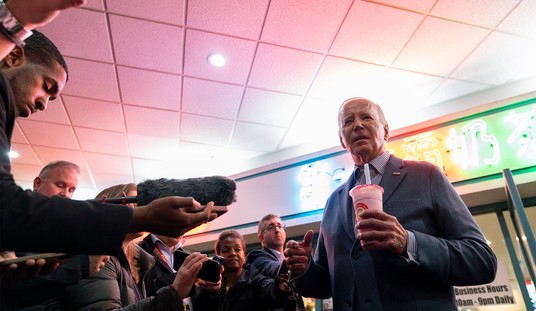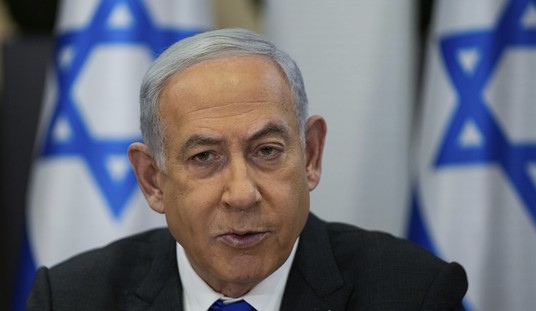Speaking at the Pentagon on January 5th, President Obama proclaimed: “Even as our troops continue to fight in Afghanistan, the tide of war is receding.”
He could not be more dangerously mistaken. As he spoke, Iranian President Mahmoud Ahmadinejad was packing his bags for yet another foreign sortie, not, as you might imagine, to Damascus to bolster the morale of Bashar Assad — alongside whom Iran’s killers are conducting mass murder in Syria’s cities and villages — but rather to Latin American capitals much closer to us, including Caracas, Quito, Guatemala City, Havana, and Managua. The Nicaraguan visit was on the occasion of the inauguration of our old enemy, Daniel Ortega. The others are to discuss matters of “mutual interest.”
Venezuela is far and away the most important, but each of the others is significant, and shows that we are engaged in a global war that is advancing, not receding. The “matters of joint concern” feature military and “asymmetrical” projects aimed directly at the American homeland. And that is only the Western hemispheric dimension of the real war. Ahmadinejad and his cohorts have worked very energetically to forge a global network that includes Russia, China, (sometimes) Turkey, Syria, and the Western hemisphere gang. In part, the network helps Iran bust the sanctions that have recently catalyzed a spectacular drop in the value of Iran’s currency. Money, weapons, refined petroleum products, and even crude oil get laundered through foreign banks, shell companies, and ports.
Sanctions-busting is the least of it. Al-Qaeda terrorists of the stature of Saif al Adel (acting AQ chief between bin Laden and Zawahiri) fought against us in Mogadiscio, and lived for years in Iran. Zarqawi, the head of al-Qaeda in Iraq, operated from Tehran for a long time. Hezbollah, an arm of the Iranian regime, sends killers to Syria to massacre protesters.
The Latin American network sends Iranians (or their surrogates, as in the plot to assassinate the Saudi ambassador in Washington) into the United States. CBN reports that 28 Iranians were detained, arrested and released by Homeland Security in the first two years of the Obama presidency, and promptly vanished. And numerous reports refer to joint Iranian-Venezuelan ventures, including weapons and missile manufacture and assembly in Venezuela.
The administration is not happy to paint this picture for the American people. State Department spokesperson Victoria Nuland, asked on January 6th about Ahmadinejad’s trip, warned that “now is not the time to be deepening ties, not security ties, not economic ties, with Iran,” But Ms Nuland did not wish to point to the well-established pattern. Instead, she carefully misdescribed the network as if it were something brand new, as if it were a panicky response to Obama’s tough policies: “As the regime feels increasing pressure, it is desperate for friends and (is) flailing around in interesting places to find new friends.”
Yes, Iran is under a lot of pressure, both from without and within. Its currency is in free fall (as of yesterday it had dropped 50% against the dollar since September), there are open rifts within the governing elite, and some of the Revolutionary Guards’ most important bases have been bombed in the recent past. For extras, the Latin network is not all it can be, since the Iranians are so unreliable. They’ve promised many things, but delivered only some of them, and the Latinos have complained openly. But the unkept promises haven’t slowed down the military programs, or the quest for uranium, which, along with the expanding terror network, are the most threatening to us.
Nor are many people paying much attention to the remarkable Chinese activities inside Iran, where the People’s Republic is establishing a chain of virtual colonies to ensure its access to Iranian resources. CNN reports that a draft treaty gives China total control over three big areas, including gas and oil deposits both on the ground and in the Gulf. All personnel is Chinese, not Iranian. Security is in the hands of the Chinese, not the Iranians. There are now upwards of ten thousand Chinese military men in Iran, organizing operations at these sites, which are slated to remain under Chinese control well into the 2020s. For their part, the Chinese offer banking outside the reach of the United States government, shipping companies that lend their flags to Iranian vessels, access to their ports, and easy entry to the international drug and weapons traffic. Furthermore, the increasingly effective throttling of the Iranian people’s access to Internet and other communications media is in large part courtesy of the Chinese. The Iranians then turn around and pass their expertise to the embattled Syrians regime. Thus, the network sabotages American policy, threatens American security, and tightens the noose around the necks of the people we sometimes claim to support.
For those who might think the rule of law applies to our enemies’ network, consider that, way back in 1965, a European court declared such schemes “Soft Colonialism,” and told all Western countries engaged in such activities to withdraw forthwith.
Then there are the Russians, about whose role in the global war much remains to be learned. They are clearly part of the money-laundering apparatus, and are major suppliers of weapons. Well-informed people believe that the American drone that recently came to earth in Iran was defeated by a Russian system that jams satellite communications, including sat phones and tv broadcasts. More ominously, I was informed by a high-ranking Iranian intelligence official that there is also close cooperation between Russian intelligence and the Iranians, including terrorist operations against American troops.
Finally, lest we forget, there are the North Koreans, who provide the mullahs with missile technology, and a considerable work force that is highly skilled at digging tunnels. Many of the actual diggers for some of Iran’s underground nuke sites were from Pyongyang.
In short, we face a global war waged by a well-established alliance of Iranian and Syrian Islamists, Russian and Chinese crony plutocrats, and Latin American radical leftists who share a love of totalitarian control of their own people and a hatred of America. We have failed to design a strategy to win this war, and indeed it often seems as if our leaders share the world view of our enemies. Obama thought he could make deals with all of them, apparently believing this would come about when they realized he shared their conviction that most of the world’s problems are America’s fault. Indeed, when push comes to shove in their own countries, his instinctive response, as Fouad Ajami recently wrote regarding Syria, is to favor the success of the anti-American tyrants.
Daniel Patrick Moynihan once famously said of Jimmy Carter’s administration that our leaders could not distinguish between our friends and our enemies, and had ended by adopting our enemies’ view of the world. It’s as accurate today as it was 35 years ago.








Join the conversation as a VIP Member